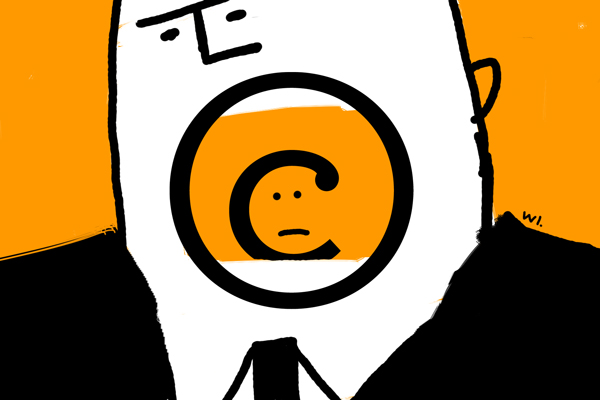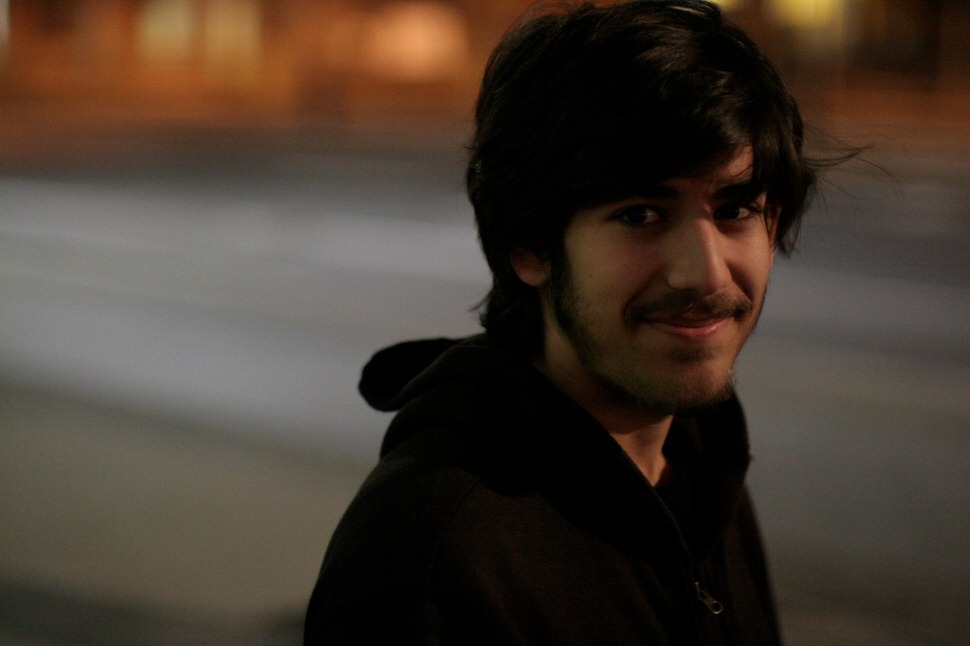Since the sad death of Internet activist Aaron Swartz, there has been a lot of discussion of the extent to which the criminal prosecution hanging over him contributed to his suicide. Some have pointed their fingers at MIT, suggesting that, by failing to waive its complaint against him for using its network to download files, the university bears some responsibility for his suicide. MIT has now set up an internal investigation. The prospect of a felony conviction and a prison sentence would be enough to make anyone think that his or her life is effectively over. For a young and exceptionally talented person who acted from noble motives, the idea of going to prison must have been even more shattering, and the depression from which he suffered would have magnified its impact in ways that those of us fortunate enough not to have experienced that condition cannot fully imagine.
The fact that JSTOR has made millions of documents freely available, after Swartz had downloaded them, shows that his actions have had what many people—perhaps to some extent even JSTOR, which after all is a non-profit organization dedicated to increasing access to scholarly publications—believe to be a public benefit. Thousands of researchers are currently putting all of their downloaded PDF files online, often in breach of copyright, as a tribute to Swartz.
There is no doubt that we should improve access to scientific resources, and the Internet makes it almost inevitable that this will happen. The only question is when. As Lawrence Lessig argues, this is knowledge paid for in large part by our taxes. More important still, in the long run, will be raising the level of general access to information throughout the world. The price now asked for a single journal article is equivalent to a month’s earnings in many countries. The Internet makes the ancient dream of a universal library possible. Why should not everyone, anywhere in the world, be able to use, without charge, all the available knowledge that humans have created?
Ideally, of course, this should happen by legal means, in ways that provide a reasonable return for copyright holders and publishers. The editors of academic journals, newspapers, and periodicals serve a valuable purpose, by providing checks and quality controls over the material they publish. Even if, as is often the case in academic journals, peer reviewers do their work voluntarily, without pay, organizing the process requires some paid staff. Some authors depend on their earnings for their livelihood. So while sharing the objective of open access, one may object to Swartz’s actions, as Lessig did, because of the methods Swartz used. Of course, there may be circumstances, as Julian Assange, another talented and high-minded Internet activist, showed, when only illegal methods can reveal information that the public has a right to know. But the information Swartz downloaded was in a different category from, for instance, the diplomatic cables describing the corruption of Tunisia’s ruling family that were released by Wikileaks and that had a significant part in the development of the Arab Spring.
Access to the Internet, and the prosecution of Swartz for the crimes he was alleged to have committed in advancing that cause, are not, however, the only, and perhaps not even the most important, issues raised by Swartz’s death. A third about which he also wrote, though less often, is depression.
On his blog, Swartz mentioned the conclusions of Richard Layard, a British economist who in recent years has focused on promoting happiness in society:
Depression causes nearly half of all disability, it affects one in six, and explains more current unhappiness than poverty. And (important for public policy) Cognitive-Behavioral Therapy has a short-term success rate of 50 percent. Sadly, depression (like other mental illnesses, especially addiction) is not seen as “real” enough to deserve the investment and awareness of conditions like breast cancer (1 in 8) or AIDS (1 in 150). And there is, of course, the shame.
Depression doesn’t just make life miserable. Worldwide, it is one of the leading causes of death. For young people, who otherwise are at a much lower risk of serious illness, it is in the top three causes of death. Around 2 million young Americans attempt to take their lives each year. Can we honestly say that we are doing enough to decrease the number of tragic deaths that result? Despite the best efforts of organizations and dedicated activists seeking to prevent suicide, the answer is clearly no.
In many countries, including the United States, access to assistance in overcoming depression is woefully inadequate. Though we are far from having methods of treatment that will reliably work for every depressed person, we do have methods that help a significant proportion of those suffering from the condition. Christina Warren, a senior tech analyst at the social media news website Mashable who suffers from depression, describes her experience:
Advertisement
At 27, I was young, a non-smoker, a casual drinker, with perfect blood work, low cholesterol and well below the average weight for my height. Yet I couldn’t get any insurance company to accept me on a PPO plan. It wasn’t until my company had enough employees to get good health insurance that I was able to stop paying more than $800 a month for medication. I wasn’t alone. A number of my friends could not get insured after college.
Even if social arrangements mean that everyone has access to medication and therapy, people suffering from depression may need our personal support. The number one rule when someone is suicidal is: Do not leave the suicidal person alone and for the suicidal person, Do not be alone. To leave a suicidal person alone is like leaving a child with a loaded gun and hoping the gun will not go off. But do we even know, as Swartz’s friends knew, whether one of our friends may have a serious problem with depression? Many depressed people do not even mention it to their close friends
When we do know that a friend of ours is depressed, we may still not always be able to prevent a friend ending his or her life, but at least we should be able to assure ourselves that we did the best we could. If, in contrast, we do nothing while our friends are suicidal, we are silent contributors to what happens.
Here too, the Internet makes a difference. The online community could do so much for so many. We seem to worry more about tracking and punishing an employee for making an “inappropriate” comment on his or her private Facebook or Twitter account than we do about saving someone’s life.
A recent study at the Karolinska Institute in Sweden showed, more convincingly than previous studies, that mental illness is more common in creative people than in the general population. In some fields of creativity, deaths resulting from suicide are as much as 50 percent higher than average (In computer science we had already lost, early on, the father of the field, Alan Turing, whose suicide, as with Swartz’s, seems to have been spurred by extreme external pressures, in Turing’s case appalling persecution related to his homosexuality). People like Swartz may therefore be even more at risk than most people and need more care and understanding.
There is one other issue raised by the way in which Aaron died, and that is whether it is justifiable to take one’s own life when one is not terminally ill or in a state of unbearable physical suffering. We are not asked if we want to be brought into this world. If we simply do not like it, or are not properly equipped to endure it, or if we fear that we are a burden on others, is it wrong to say that we no longer want to live our life?
We may regret such a decision. We may wish that those who end their lives when they have many years ahead of them could have found the means to contribute to the world in a positive way, and in the process to find some satisfaction for themselves. If, however, they cannot achieve this, we should respect their decision, and not slander the memory of those who make this choice.




